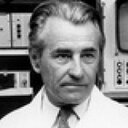[Mechanisms in the development of cardiovascular complications in obstructive sleep apnea].
Açar sözlər
Mücərrəd
Obstructive sleep apnoea may be accompanied by various cardiovascular consequences resulting from alteration of the activity of the autonomous nervous system. These changes are mediated by: a--hypoxemia developing during the apnoea, b--severe hypoxemia, hypercapnia and acidosis in postapnoea, c--powerful but ineffective ventilatory efforts causing arousal and stimulation of the cardioexcitatory and vasomotor centres. There are four main pathogenetic mechanisms implementing the cardiovascular changes: 1--Functional alteration in the conduction system and the myocardium resulting in nocturnal cardiac dysrhythmias. 2--Vasoconstriction manifesting as angina pectoris, myocardial infarction, brain attacks and pulmonary or systemic hypertension. 3--Pulmonary congestion leading to cardiac or bronchial asthma or even lung oedema. 4--Neuroendocrine activation, including the sympathetic nervous system, renin-angiotensin-aldosterone system, atrial natriuretic peptide and erythropoietin, which may result in nycturia, nocturnal hypotension and diurnal hypertension.


